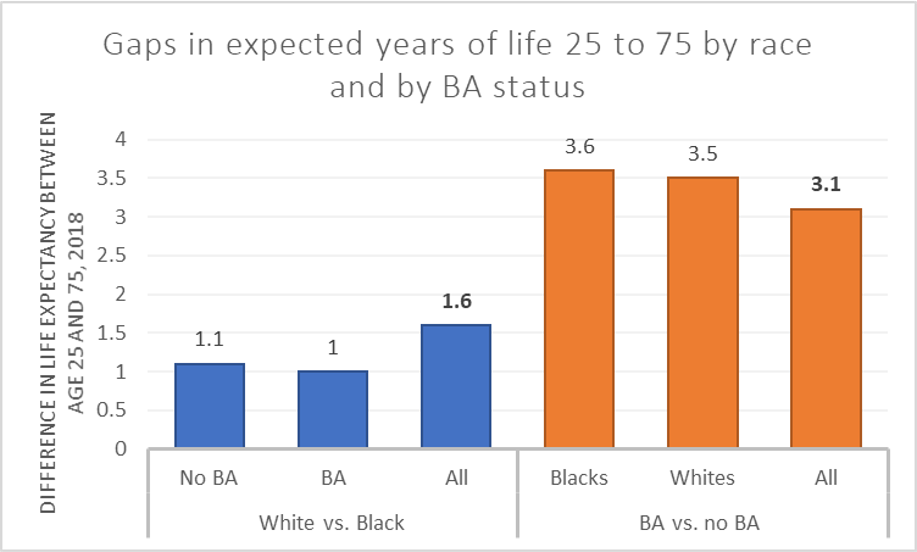That is the finding from a study published by Anne Case and Angus Deaton this week in Proceedings from the National Academy of Sciences (PNAS). While COVID-19 has had a clear impact in the last 12 months, in fact figures from the National Center for Health Statistics (NCHS) indicate that American life expectancy peaked in 2014 (at 78.9 years). The authors try to explain why life expectancy in the US is falling.
To dig into this questions, the authors use data from the National Vital Statistical System (NVSS). The authors main measure is the expected number of years a 25 year old can expect to live before his or her 75th birthday. This measure has its limitations as it ignores any survival benefit for those over 75, but does do a better job at capturing the impact of deaths of despair that the authors had written about previously.
In the analysis, the authors find that by 2018, Americans with a 4-year college degree (i.e., a BA) could expect 48.2 out of a possible 50 years, compared with only 45.1 years for those without a BA.
Further, the authors find that the college degree vs. no college degree gap in life expectancy is larger than the black-white gap.

On a positive note, the racial divides in life expectancy at age 25 narrowed by 70% between 1990 and 2018, On the other hand, it is likely that both the racial and education divide in life expectancy could be exacerbated by COVID-19.